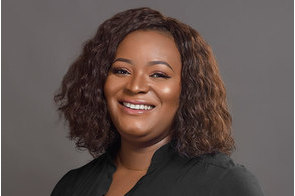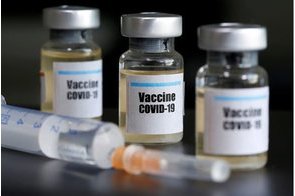Latest News
Women and girls rescued from Boko Haram face rejection from society

News Highlight
- Communities interviewed for the report viewed returnees as “Boko Haram wives” and “annoba” (epidemics).
A new report by International Alert and United Nations Children's Emergency Fund (UNICEF), says girls and women kidnapped by Nigeria's insurgent group, Boko Haram, are faced with mistrust and persecution upon their return to society.
The report, ‘Bad blood’: Perceptions of children born of conflict-related sexual violence and women and girls associated with Boko Haram in northeast Nigeria, released today says at least 2,000 women and girls have been abducted by Boko Haram since 2012. This include the more than 200 schoolgirls who were abducted on April 14, 2014 from their secondary school in Chibok, in Borno State.
Many of these girls and women have experienced sexual violence while being hostages of Boko Haram, also known as Jamāʻat Ahl as-Sunnah lid-daʻwa wal-Jihād (JAS). Many have also been trained to fight and become suicide bombers. A different report publish in October 2015 by Stratfor, a geopolitical intelligence outfit, said Boko Haram has used more female suicide bombers than any other militant group in history.
Through the ongoing counter-insurgency by the Nigerian military, many of the women and girls have been rescued and the survivors are returning home. However, the perception that their communities have of them and their children who are born out of sexual violence by Boko Haram insurgents is making it difficult for their integration, said International Alert, a global peacebuilding organisations that helps countries and organisations around the world to build peace by focusing on issues that influence peace, such as governance, economics, gender relations, social development, climate change, among other issues.
“These findings show a pressing need to do more to re-integrate those returning from captivity by Boko Haram,” Kimairis Toogood, who is Peacebuilding Advisor for International Alert in Nigeria, said. “Many of these girls already face lasting trauma of sexual violence and being separated from their families, so we must ensure they get all the support they need when they finally return.”
Communities interviewed for the report viewed returnees as “Boko Haram wives” and “annoba” (epidemics), conveying the fear they have been radicalised and if allowed to return home, they might recruit others.
Nevertheless, the report says communities generally believe that over time, relations could be rebuilt and the women and girls could gradually be accepted and trusted. But for this to happen, the women and girls would need to go through a more comprehensive rehabilitation process before returning home.
In addition, the children of these returning women and girls, whose fathers are believed to be Boko Haram fighters, are perceived with acute suspicion. And while perceptions of women changes over time, this does not apply to children. The children are believed to have “bad blood” transmitted to them by their biological father, placing them at risk of rejection, discrimination and potential violence in the future.
One of the women rescued said of her child, “Initially I didn’t want to, but when we were rescued and counselled in the camp, I decided to keep the pregnancy… When I think of the baby that will come, it disturbs me a lot because I always ask myself this question… Will the child also behave like JAS [Boko Haram]?”
The report also found that while humanitarian assistance is reaching Boko Haram survivors and returnees, it is still inadequate for the breadth and depth of the need. Many women and girls, isolated and ostracised not only by communities but also their families, face dire poverty and some are forced into prostitution to feed their children.
“There is a fear that if the needs of these survivors and returning populations are not met, these factors could add another dimension to an already complex conflict situation in northeast Nigeria,” Toogood added.
The report is based on a research carried out by International Alert and UNICEF, in collaboration with the Borno State Ministry of Women Affairs and Social Development and the International Organization for Migration. The research received funding from the Government of Japan. The assessment was conducted in four internally displaced persons (IDP) camps in Maiduguri Metropolitan Council, Borno state capital, where 95% of all IDPs are returnees from Boko Haram camps.
The findings will inform a new project by Alert and UNICEF in northeast Nigeria aimed at better rehabilitating and reducing stigma against women, girls and children associated with Boko Haram, and to prepare communities for their reintegration.
Related News
Latest Blogs
- How Tinubu is ensuring equitable access to public services
- Nigeria’s economic reform faces new threats
- What Ould Tah’s tenure at BADEA reveals about his AfDB candidacy
- Implementation strategy crucial for the success of 12-4 education policy
- A senator’s suspension threatens the right of representation
Most Popular News
- Artificial intelligence can help to reduce youth unemployment in Africa – ...
- Nigeria records $6.83 billion balance of payments surplus in 2024
- Tariffs stir inflation fears in US but offer targeted industry gains ...
- Soaring civil unrest worries companies and insurers, says Allianz
- Rise in vaccine-preventable disease outbreaks is a threat, warn WHO, others
- IMF warns of global public debt approaching 100 percent of GDP









